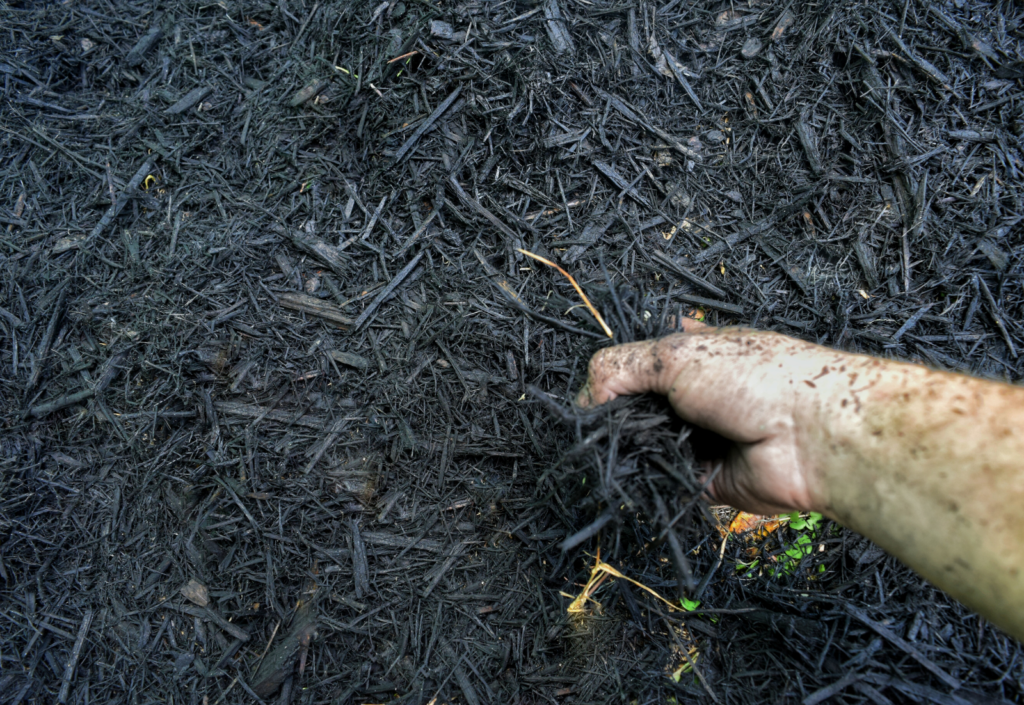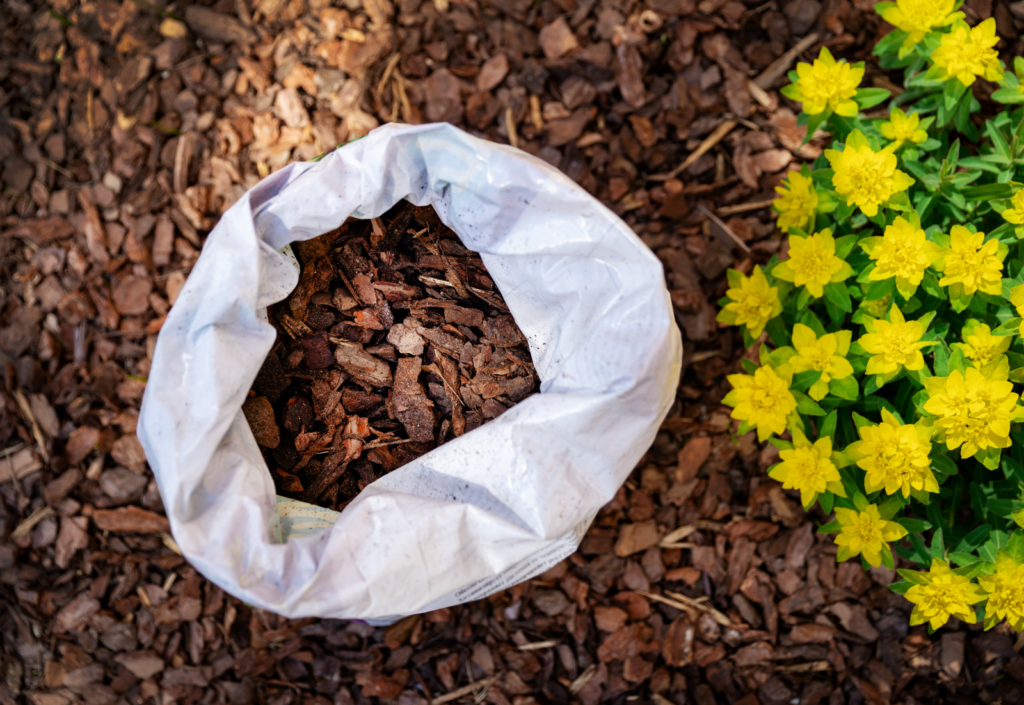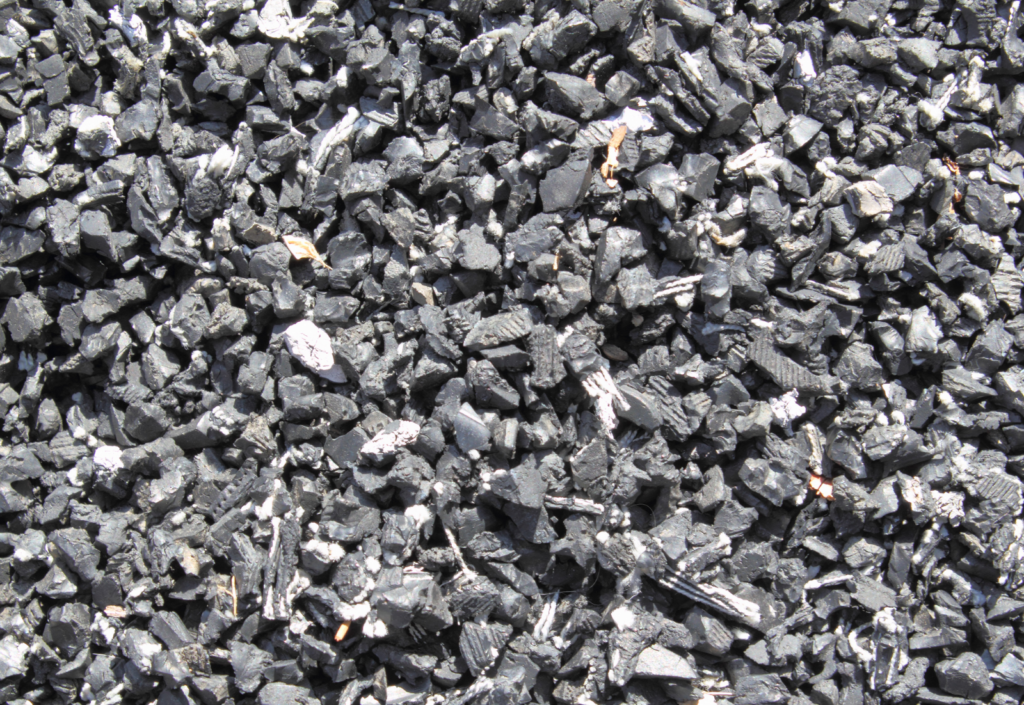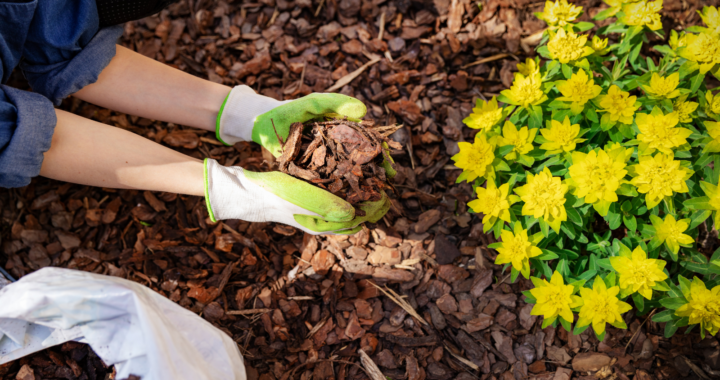Mulch is a simple and inexpensive product that offers a bevy of benefits for your home landscaping. It helps keep your soil and plants healthy and your landscape looking neat and tidy.
There are many different options available for mulch, all with their own pros and cons. Ultimately, you should choose the one that best suits your needs and offers the most advantages for your landscaping.
To help you choose, we’ve compiled 10 of the best mulch options for home landscaping.
What Does Mulch Do?

Before we dig into the different options for mulching material, let’s take a step back and talk a bit about the purpose of mulch.
Mulch is a material that you lay over the surface of the soil in garden beds and around the base of trees and shrubs. This covering plays several roles in maintaining the health and beauty of your landscaping, including:
- Retaining moisture and nutrients in the soil
- Suppressing weeds
- Keeping soil cool in summer
- Protecting plant roots in winter
- Preventing soil erosion or compaction
- Creating an attractive, well-manicured appearance
Each spring, you’ll want to add ½-1 inch of fresh mulch topdressing to your garden beds. Depending on how quickly your mulch of choice decomposes, you may need to add an additional 2-3 inches of mulch every couple of years or so.
Organic Mulch vs Synthetic Mulch
Among the mulch options on the market, there are two broad categories: organic and synthetic.
Organic mulch is made up of organic materials like wood, straw, or leaves. It naturally decomposes, and as it does so, it helps improve the soil’s structure, drainage, and capacity to hold nutrients. It also creates a welcoming environment for earthworms and other beneficial organisms that help maintain rich, fertile soil. Because it decomposes, organic mulch will have to be replaced regularly.
Synthetic mulches are made of inorganic materials like gravel, plastic, or landscaping fabrics. Though they don’t provide the nutrients and other benefits to the soil that organic mulches do, synthetic mulches do offer other benefits. They are great at holding onto moisture and blocking weeds, and they don’t decompose as quickly so they don’t have to be replaced as often as organic mulches. They can also be advantageous for steeply sloped or otherwise hard-to-maintain areas.
The type of mulch you choose will depend on the function and aesthetic you are going for in your landscaping.
Organic Mulch Options
Organic mulches are, generally speaking, much more beneficial to the environment and to the health of your soil than synthetic options are. Here are some commonly used organic mulch materials:

1.) Bark or Shredded Wood
Bark or shredded wood mulch is inexpensive, widely available, and breaks down relatively slowly, so you won’t have to replace it as often as finer organic mulches. Plus, it lends a clean, attractive appearance to your landscaping.
Woody mulches are best used around trees and shrubs and in garden beds where you don’t need to do a lot of digging. They don’t mix well into the soil, so you have to move them aside if you want to add new plants to your beds.
Shredded wood mulch is a favorite here at McDonough (especially Western Red Cedar): it looks great, naturally suppresses weeds, holds moisture at plant roots, and provides nutrients for the soil.
2.) Pine needles
If you live in an area with a lot of pine trees, their fallen needles offer a great free mulch option. Pine needles are good for weed suppression, work well on sloped surfaces, and break down slowly, so you don’t have to replace them as often as some mulches.
As they degrade, pine needles increase the acidity of the soil, so they aren’t the ideal choice for all plants. But if you have blueberries, azaleas, rhododendrons, or other plants that like acidic soil, pine needles are a great mulch option.
3.) Newspaper
Enjoy reading the newspaper with your morning coffee? Don’t toss that paper into the recycling bin — use it in your garden beds instead!
As a mulch material, newspaper is great for moisture retention, weed suppression, and soil temperature control. It can also be used to smother existing grass to create new garden beds.
To use newspaper in your gardens, layer 4-8 sheets of newspaper around plants, and moisten them to keep them in place. Then cover the paper with 1-3 inches of another organic mulch option. One application should be sufficient for the entire growing season.
4.) Shredded Leaves
Shredded leaves aren’t as attractive as other mulches, but they’re a great free, natural option. If you spread them onto your garden beds early in the growing season, they tend to blend in fairly quickly as your plants spread out and fill in the space. Plus, earthworms and other beneficial organisms love them.
Note: when wet, leaves can mat up and keep water from soaking through — if that happens, simply use a rake to loosen them up.
5.) Straw or Hay
If you have a vegetable garden, straw and hay make great mulch materials. They keep soil and soil-borne diseases from getting onto lower plant leaves, and help make garden paths less muddy. They also create a good atmosphere for beneficial insects like spiders who help control pests.
Both straw and hay decompose very slowly, so one application should last the entire growing season. At the end of the season, you can rake up straw or hay or till it into the soil.
6.) Cocoa Bean Hulls
Cocoa bean hulls have become a popular mulching choice in recent years. They are attractive and help to suppress weed growth, retain moisture in the soil, and protect plants from both hot weather and frost. However, they can be prone to mold in hot humid conditions, and are typically at the more expensive end of the spectrum.
Cocoa bean hulls can also make your yard smell like cocoa…which can be nice for humans, but not so nice for pets. Cocoa hulls are toxic to animals if they eat it, so if you have outdoor pets (or if there are a lot of them in your neighborhood) you may want to opt for another type of mulch.
7.) Compost
While compost won’t add the beauty that shredded wood mulch or cocoa hulls can, it will help keep your soil healthy and full of nutrients.
Compost helps suppress weeds while distributing the nutrients your plants need into the soil, resulting in flourishing plants, strong roots, and a vibrantly healthy landscape. As a bonus, compost is free and a great way to keep food waste out of the landfill.
Synthetic Mulch Options
While synthetic mulches don’t provide your soil with the same nutrient benefits that organic mulches do, they can be the right choice for some landscaping needs. A few common synthetic mulches are:

8.) Black Plastic
Black plastic is a good choice for areas around foundation plantings and other shrubs and trees that don’t need frequent fertilization.
Plastic is excellent at smothering weeds, but it can also kill good things in the soil — such as plant roots and beneficial microbes — if there isn’t enough moisture present. To help solve this problem, cut holes in the plastic to allow water to pass through. If you see puddles, you need more drainage.
Note that as plastic decomposes, it can be detrimental to the soil and the surrounding environment.
9.) Landscape fabric
Landscape fabric is more porous than plastic, so drainage isn’t as much of an issue. It works well for blocking weeds, and is a great choice for areas prone to soil erosion. One downside of landscape fabric is that it can be expensive, so it isn’t a good fit for every budget.
For both plastic and fabric options, if you like the functionality but not the look of them, you can always add a thin layer of bark mulch or gravel on top. In fact, as landscape fabric is lightweight, it works best when topped with gravel or stone to anchor it down.
10.) Stone or Gravel
Stone or gravel are great options for areas that need better drainage or beds with plants that like a little more heat. One of their biggest benefits is curb appeal — stone or gravel in garden beds and around trees or shrubs makes your landscaping pop.
Plus, they will never break down in your garden beds. While they won’t improve the health of your soil, you also won’t need to replace them each year. As a more permanent mulch option, stone can be difficult to remove, so make sure it’s what you really want before you choose this option.
Leave Your Landscaping Tasks to McDonough
Not sure which of these mulch options are right for you? Our expert team can help you determine which mulch material is right for your needs.
And if you’d rather hand off your landscaping tasks to someone else, we can help with that too. Take a look at our landscaping services here, and contact us for more information or to get on our schedule.

